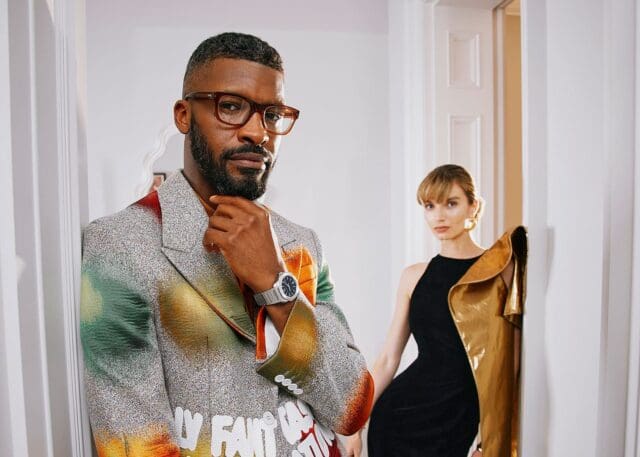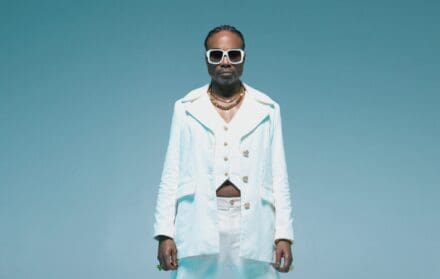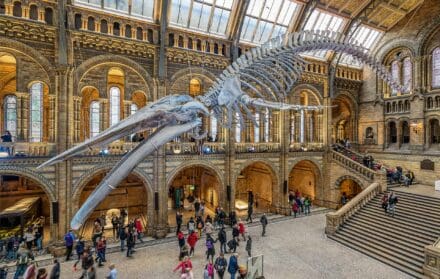
Leonardo DiCaprio in The Revenant: Man of the Moment
Everyone loves Leo. The world’s had a crush on him since he sank with the Titanic. Almost 20 years later, the planet’s most in-demand movie star is also its most eligible bachelor. For box-office attraction, and pure,
Until Avatar knocked it off the top spot, James Cameron’s other cinematic epic, Titanic, starring a then 23-year-old DiCaprio, was the highest grossing movie of all time, making $2.2 billion in theatres and a further $1.2 billion in DVD sales. Leo’s mass market magnetism meant that the three films in which he starred between 2012 and 2013 – Quentin Tarantino’s Django Unchained, Baz Luhrmann’s The Great Gatsby and Marthin Scorsese’s The Wolf of Wall Street(how’s that for a collection of directors) – reimbursed their respective producers to the collective tune of more than $1.1 billion.
In packing out cinemas, Leo is utterly peerless.
Yet about the personal life of the planet’s most popular actor we know surprisingly little. While other Hollywood super-studs broadcast their existence in high definition, we view Leo’s vicariously, in indistinct snapshots captured through the long lens of the paparazzi. Leo is the one in the shadows. Leo is the one in the baggy sweats and baseball cap. Ironically, it’s a look that’s now so conspicuously inconspicuous it’s almost fancy dress.
Leo, as it’s been said before, is an enigma. The most salacious of unknowns surrounds his love life. There’s the conjecture – that he once served as patriarch of something called ‘The Pussy Posse’, a self-styled group of lady-chasers made up of aspiring actors and wannabes (including, coincidentally, Tobey Maguire and David Blaine). Or that, in 2014, he was spotted leaving an after-party during Art Basel Miami arm-in-arm with 20 women.

Then there are the facts – Gisele Bündchen, Bar Refaeli and Blake Lively are all former flames. As are Victoria’s Secret’s models Toni Garrn and Erin Heatherton. Rumours of a fling with Rihanna surfaced last year and re-emerged recently after Leo and model girlfriend Kelly Rohrbach called it quits, which put an end to speculation that he’d proposed to the swimwear star just before Christmas.
Then there’s the other thing about Leo. That for all the sun-kissed super-yachts and all the golden-skinned supermodels there’s been no little gold statue.
It’s become the biggest monkey on any Hollywood back.
The Revenant – the reason the famous recluse is suddenly on every news feed, gossip website and magazine cover is a cinematic masterpiece. Immersive, visceral and epically intimate, the brutal revenge saga chronicles the true-life story of fur trapper Hugh Glass, a man, who, almost fatally wounded by a bear, crawls, swims and treks across hundreds of miles of America’s most inhospitable wilderness to murder the man who left him for dead. And you thought you held a grudge.

The film has two standout scenes. The opening passage sees Glass and his fur trapper chums attacked by Arikara Indians. Shot point-of-view, video-game-style, we’re put slap-bang in the action, the camera passed around like a rugby ball. It’s an enthralling, how-have-they-done-that sequence that rivals Gladiator in the best opening scene stakes.
The bear attack you’ve already read about.
“It’s one of the most incredible cinematic experiences I think audiences will ever have,” said DiCaprio, speaking at a New York press event.
“They will see it as if they are a fly buzzing around the attack. They will practically feel the breath of the bear. It’s almost like another sense is awakened – fully immersed in this moment. It really takes your breath away.”
The smart money suggests that The Revenant will walk away with the Academy Award for Best Cinematography – for which it can thank Emmanuel Lubezki, the cinematographer behind Birdman, Gravity and The Tree of Life – and Best Director for Alejandro G Iñárritu, who gave us last year’s Oscar-winning Birdman, as well as Babel, Biutiful and 21 Grams.
If DiCaprio does win the Oscar for Best Actor it won’t be for the performance of his career. For most people, depending on which Leo you love most – the megalomaniac or the maniacal – that came in either The Wolf of Wall Street or The Aviator. For all of the shivering and all of the snot, The Revenant fails to connect at a deep, emotional level. Which would be a problem, if it wasn’t Leo playing the lead.

Glass doesn’t speak for much of the movie, meaning that DiCaprio has to convey his struggle through body language alone.
“This was almost like silent film acting,” he says. “I have to articulate by emoting my struggle. Oftentimes there was nobody else to play off… Glass says next to nothing, but I think a lot is conveyed in a performance if the actor embraces or is committed to that.”
Leo was certainly committed. After spending up to five hours a day in make-up, he crawled half-naked in snow while temperatures slumped as low as -40 °C. He risked hypothermia in river rapids, and, having decided that the rubber liver he’d been given to eat looked fake, opted to chew on raw bison liver instead. Captured in one take, the vegetarian’s reaction in the film is real. What more can a man do?
It would be fitting for Leo to win his first Oscar for The Revenant. Bringing to life the story of one of America’s most legendary frontiersman, DiCaprio depicts the humble beginnings of the sort of large-scale, environmentally-exploitive industry he campaigns so ardently against.

“The period in the film saw the first infiltration of the white man into this untouched region,” he says. “The fur trade was before the gold rush, before the oil rush, it was the first bit of nature that could be extracted and exported to Europe. So here you have the French, the English, the early Americans, all instilled in what is the American Amazon of that time.”
While he doesn’t think The Revenant carries an overt political message, DiCaprio hopes the movie will make people think more about man’s manipulation of the environment.
“Oil companies go into Papua New Guinea or the Amazon or Canada and kick the native indigenous people off their lands or poison their lands and cut down their trees,” he says. “This is an age old story, and to me this film is set at the beginning of that in the history of America. This is the first time that we’ve gone to these territories and started to extract things for capitalistic reasons.”
DiCaprio’s environmental activism is well documented. He drives a Toyota Prius and has attached solar panels to his house. Since 2014, he’s been a United Nations climate change ambassador. Before that, he donated $1 million to the World Wildlife Fund to help protect tigers in Russia. In 2014, he acted as executive producer on Virunga, a Netflix documentary detailing the struggle to preserve gorillas in the Democratic Republic of Congo.

Just last month, talking at the World Economic Forum in Davos, DiCaprio used a speech to demand more action on climate change. “We simply cannot afford to allow the corporate greed of the coal, oil and gas industries to determine the future of humanity,” he argued, addressing a room full of business leaders and heads of state.
“Those entities with a financial interest in preserving this destructive system have denied, and even covered up, the evidence of our changing climate. Enough is enough. You know better. The world knows better. History will place the blame for this devastation squarely at their feet.”
Call your son Leonardo and you’d better hope he does something useful with his life. DiCaprio is the environmental activist who’s become Hollywood dynamite, the actor that every audience wants to watch, the actor with whom every film-maker wants to work.
He’s been nominated for five Academy Awards in the past. So far, no luck. Maybe he’s about to break his duck. Maybe not. Oscar or no Oscar, the year already looks like it belongs to Leo.









